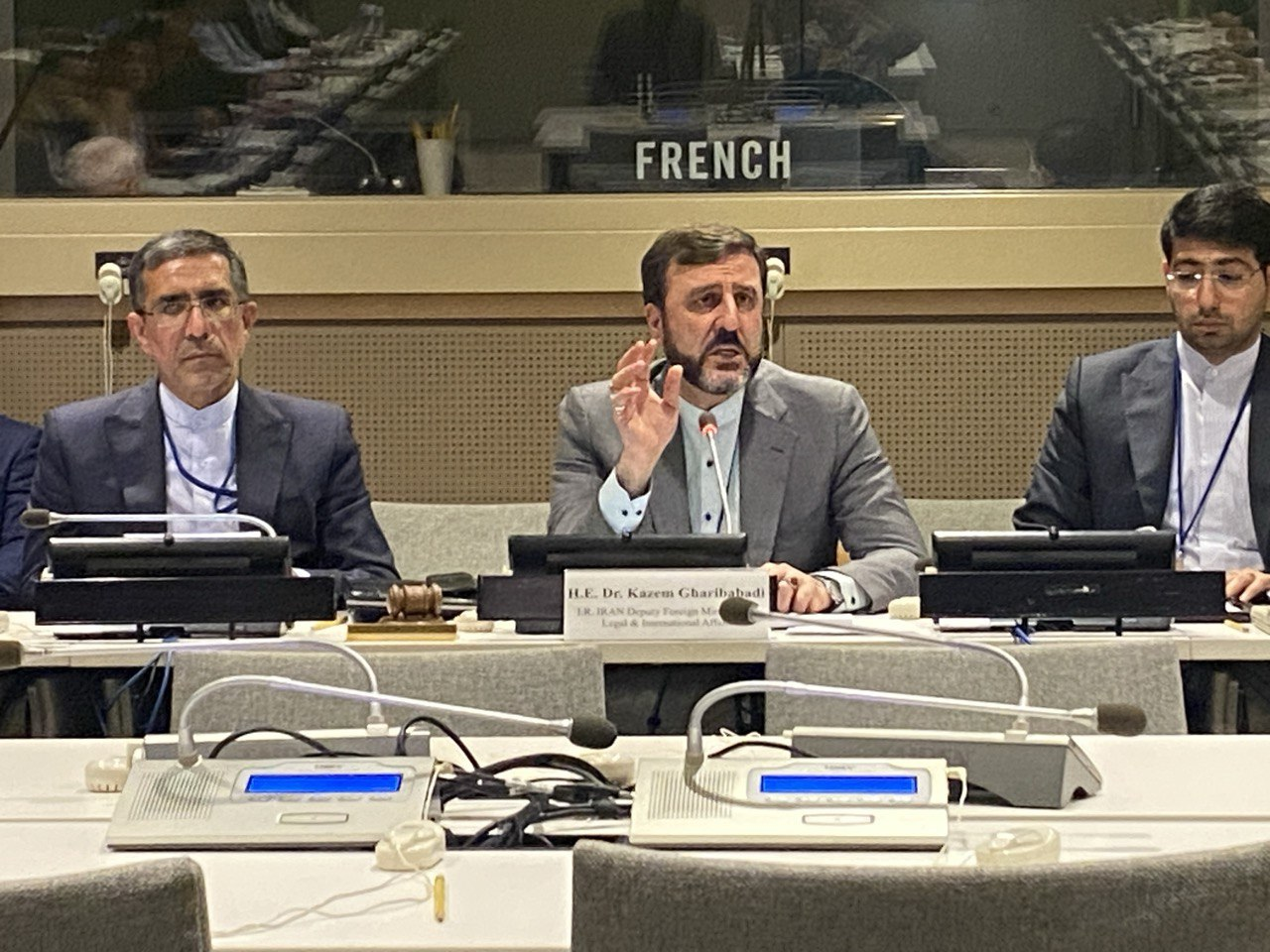Iranian Deputy FM: Invasion against Iran clear crime historic test for UN Security Council
The Islamic Republic of Iran’s Deputy Foreign Minister for Legal and International Affairs Kazem Gharibabadi on Monday held an explanatory briefing in New York attended by representatives of over 110 UN member states to outline the dimensions of the Zionist regime and US aggression against Iran and their consequences for global peace and security.

The Islamic Republic of Iran’s Deputy Foreign Minister for Legal and International Affairs, Kazem Gharibabadi, on Monday held an explanatory briefing in New York attended by representatives of over 110 UN member states to outline the dimensions of the Zionist regime and US aggression against Iran and their consequences for global peace and security.
At the meeting, he branded the Zionist regime as the main source of insecurity and instability in the region over the past eight decades, noting, “This is the same regime that has carried out more than 3,000 terrorist operations, displaced over seven million Palestinians, martyred hundreds of thousands, and arrested more than one million Palestinians.”
Pointing to the dangerous nature of the Zionist regime’s nuclear arsenal, he said, “The regime that has occupied Al-Quds is a party to none of the disarmament or WMD‑non‑proliferation treaties, yet it stores hundreds of nuclear warheads.”
By contrast, Gharibabadi pointed out, “While Iran’s nuclear program has always been peaceful and remains under the strict and continuous oversight of the International Atomic Energy Agency (IAEA), the Zionist regime has, for over thirty years, deceived public opinion and the US government with baseless claims about an Iranian atomic bomb. The question is: where is the alleged nuclear bomb? Isn’t it truly absurd that a regime with a record drenched in aggression, crimes, and brutality, and one that possesses various weapons of mass destruction, levels accusations against a country that is a member of the Non-Proliferation Treaty (NPT)?”
Referring to reactions to the recent strikes on Iran’s peaceful nuclear facilities, the senior diplomat said, “The overwhelming majority of countries condemned the attack by the Zionist regime and the US on the Islamic Republic of Iran’s territory, yet unfortunately three European states, the Security Council, the IAEA Board of Governors, or even its Director General, not only failed in their legal and moral duties, but also shut their eyes to an unmistakable crime by remaining silent or taking biased stances.”
Gharibabadi warned, “Iran has been attacked by two nuclear‑armed regimes, but the US and its supporters blocked any condemnatory resolution in the Security Council and the Board of Governors. Now the important question is, if the Security Council cannot fulfill its mandate, which body is responsible for maintaining international peace and security?”
Calling the strike on Iran’s peaceful, safeguarded facilities “an unprecedented and grave crime,” he asked, “What message does the failure to issue a condemnation resolution by the Board of Governors and the Security Council, along with the silence of the IAEA Director General and some permanent members of the Council, send to other members of the Non-Proliferation Treaty (NPT)? Why is it that the very countries that raise loud objections over Iran’s transparent and lawful nuclear activities remain silent in the face of the Zionist regime’s blatant disregard for international legal frameworks and its development of nuclear weapons?”
The Iranian deputy foreign minister concluded with a stark warning, noting “Does this dangerous silence not tell countries like Iran that if you are outside the NPT, you will not only escape censure, but will also enjoy privilege and impunity?”
The briefing, warmly welcomed by delegates from more than 110 countries, ended with calls to uphold the UN Charter, reject double standards, and support the Islamic Republic of Iran’s legitimate right to self-defense.